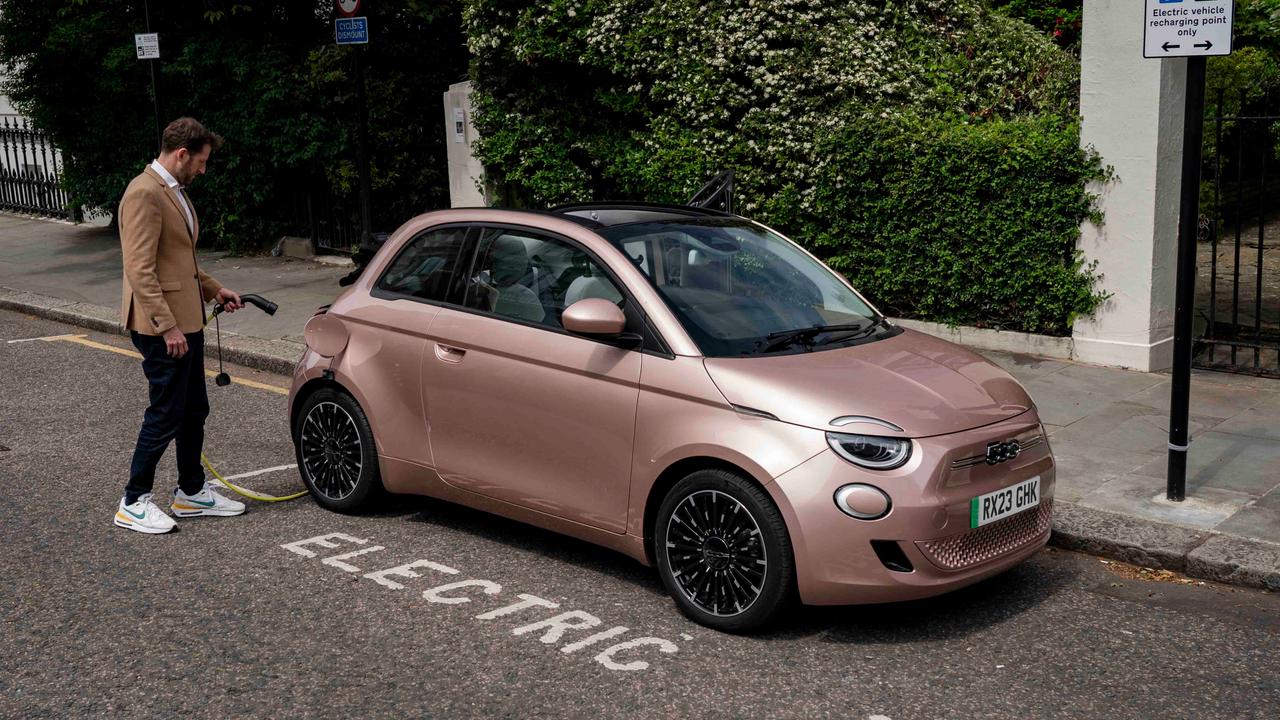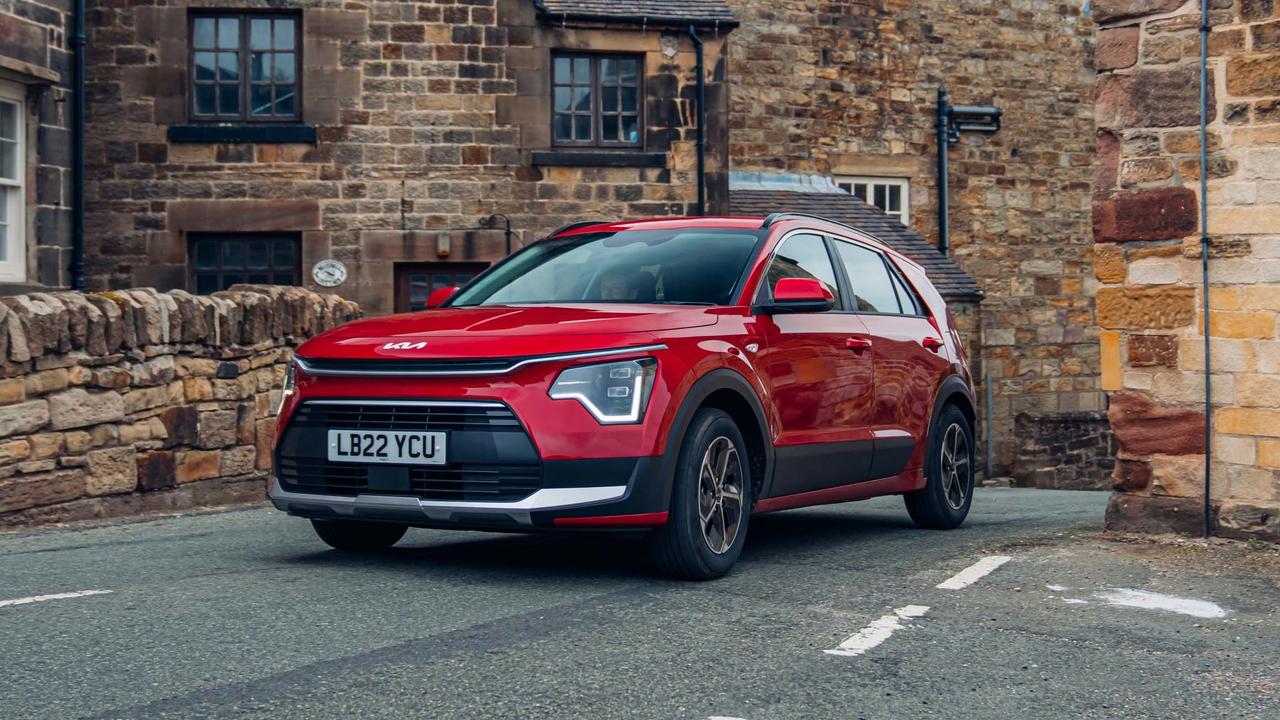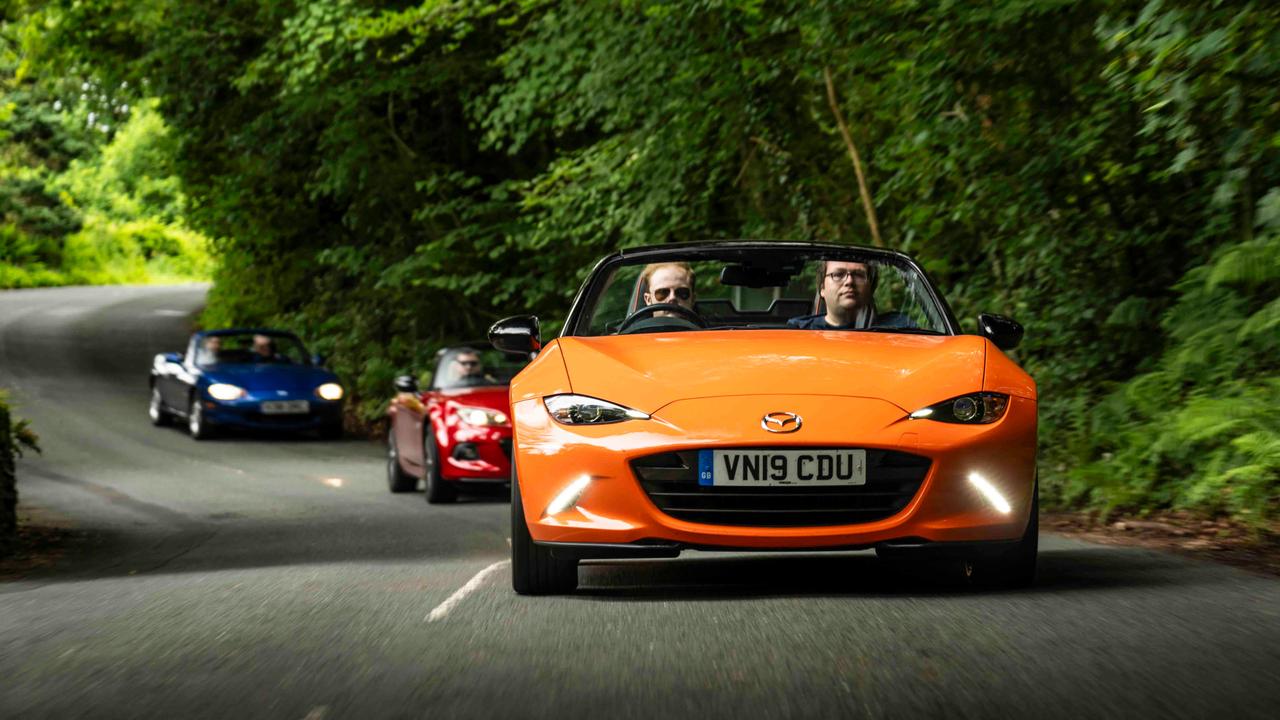We’ve pitted petrol, diesel, hybrid and electric against each other, listing their plus points and pitfalls to help steer you towards the perfect car.
In the past, buying a car meant choosing between petrol and diesel. But no longer. Now, a new generation of hybrid and electric cars means there’s more to think about on the forecourt – from efficiency and performance, to how emissions might affect VED (road tax). We’ll focus on petrol and diesel engines first, before getting on to hybrid and electric cars a bit further down.
Petrol vs diesel
The sale of new diesel cars has seen a sharp decline in the 2020s, partly due to the rise in electrified options and partly due to emissions controversies surrounding diesel engines. Diesel engines produce more nitrogen oxide emissions (NOx) than petrol ones, which negatively affects local air quality – that’s why London’s ULEZ and the increasing number of clean-air zones (CAZs) across the country punish diesel cars more than petrol ones.
Diesel is still the best fuel choice for high-mileage drivers. Long journeys result in higher miles per gallon (mpg) figures than petrol engines, so a diesel car will save you money versus a petrol car if you’re always up and down the motorway. Diesels aren’t suitable for lots of short local journeys, because they have a diesel particulate filter (DPF) that blocks up with soot if it’s not given a chance to clear itself – which happens at higher speeds.
For mixed driving – maybe a bit of town driving and a few longer trips – a petrol engine is likely to be a better choice than a diesel one.
Electric, hybrid and plug-in hybrids explained

Electric, hybrid and plug-in hybrid cars are all increasingly common on our roads, with advances in technology making them a realistic option for more and more owners. However, there is still a little confusion surrounding what each entails and the differences between the three. So, before we delve into the pros and cons of each, here’s a quick guide into how they differ.
All three power types at least partly use electricity to power them forward, but the major difference is how reliant they are on this form of energy.
- An electric vehicle (sometimes abbreviated to EV or BEV) is entirely powered by electricity and requires charging to keep it on the road
- A hybrid vehicle (HEV) uses electricity to power short bursts, but is reliant on diesel or petrol for acceleration and driving at higher speeds. Sometimes called ‘self-charging’, this type of hybrid doesn’t require charging up, with its battery powered by regenerative braking and the internal combustion engine
- A plug-in hybrid (PHEV) is somewhere in between the two. The battery can be charged in the same way as that in an EV, but it doesn’t have the same range. The battery can power a PHEV for roughly 20-50 miles before the petrol or diesel engine kicks in and takes the car further
All three engine types are more environmentally friendly than traditional petrol and diesel cars – with purely electric vehicles having the least environmental impact in the local area. Most electric cars can manage at least 200 miles on a charge, and the vast majority offer fast charging for easy top-ups at public chargers.
Petrol vs electric vs hybrid

If you have access to off-street parking or a dedicated parking spot, and don’t often do long journeys, then an electric car will probably slot into your lifestyle well. However, you’ll need to consider the cost of having a wallbox installed if you’re going to be charging at home – and whether your home is able to have a wallbox installed.
If you don’t have off-street parking or don’t want to make the jump to full electric just yet, a hybrid is a good choice. With the electric motor and battery assisting the engine, hybrids can be more economical than solely engine-powered cars – with a couple of caveats. Hybrid cars do their best work around town and don’t tend to be as efficient as a petrol or diesel car at higher speeds and, once a plug-in hybrid is out of charge, the petrol engine has to lug around a heavy battery pack.
Modern petrol engines are typically more efficient and longer-lasting than ever before, and petrol cars are still the go-to for over half of new car buyers in the UK. Small cars almost exclusively come with petrol engines, and it’s the preferred fuel type for performance cars as well.
The pros and cons of major engine types
Here’s a quick overview of the pros and cons of different engine types, so you can get an idea of the car that would be right for you.
| Fuel type | Pros | Cons |
| Petrol |
|
|
| Diesel |
|
|
| Full or 'self-charging' hybrid |
|
|
| Plug-in hybrid |
|
|
| Electric |
|
|
Things to consider when choosing an engine type

Before you pick your next car, you should take time to weigh up your options. What is important to you as a driver? How will your car help with day-to-day life? And how much can you spend on buying and running a car?
Consider the following points and you’ll be well on your way to finding the car that’s right for you.
Budget
When budgeting for a new car, there are two things to think about: how much you can spend on the car itself, and how much you can afford to run it.
If you’re not looking to spend a lot on a car, a petrol or diesel is probably the best option. Hybrid and electric cars have a higher starting price, and this can offset the benefit of lower running costs for some drivers.
If, on the other hand, you’re looking to buy a more expensive car, a hybrid or electric model has the added benefit of cheaper running costs in the long-term. For electric cars, in particular, you’ll likely make big savings on tax (it’s free until 2025), and recharging costs.
Performance

Keen drivers want their car to do more than get them from A to B; they want them to be fun and exciting to drive, both in town and out on fast, country roads. So, if performance is important to you, you should definitely think about engine type before you buy your next car.
For years, petrol has been the go-to fuel type for those who want driving to be a fun experience. You only have to look at all the great hot hatchbacks, like the Ford Fiesta ST and VW Golf GTI, to see that even small petrol engines offer a great combination of performance and reliability.
Diesels are often focused on economy, but high-powered diesel engines from the likes of BMW and Mercedes don’t skimp on performance, either.
But let’s not forget about EVs and hybrids. Manufacturers including Tesla have shown that electric cars can be just as fun to drive as their petrol counterparts, with superb instant acceleration that never gets old.
So, whether you want the good old revs of a petrol or the directness of an electric, there’s a lot to consider when choosing a car for its performance. Weighing these things up alongside budget and what a car is like to live with should help you find the model you’re looking for.
Excited to go electric or pleased with petrol? If your next car is going to be an EV, read our informative electric car guides – while petrol buyers can save money with our guide to improving your fuel economy.








































